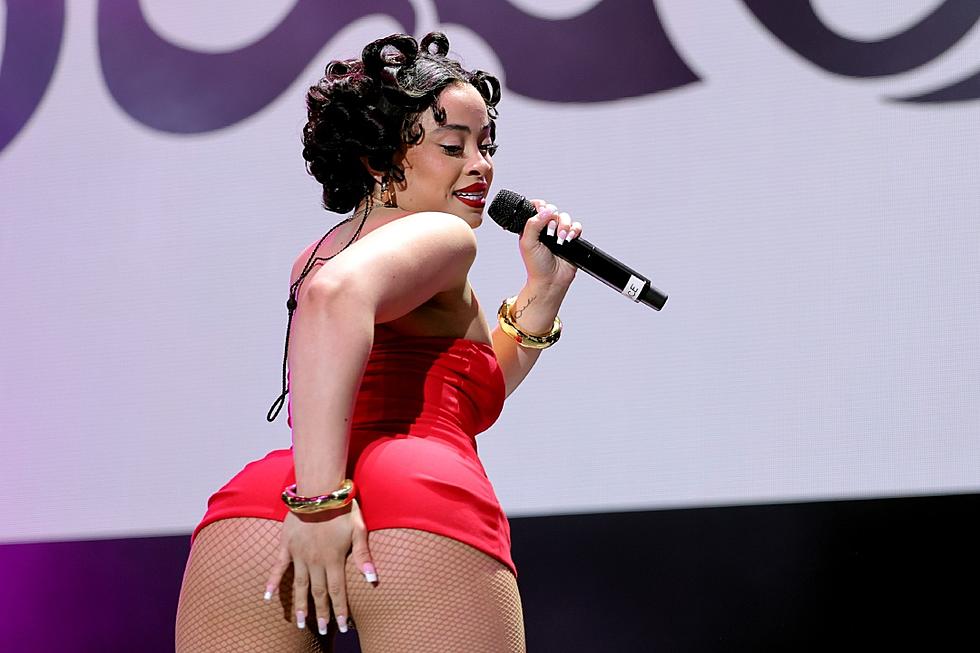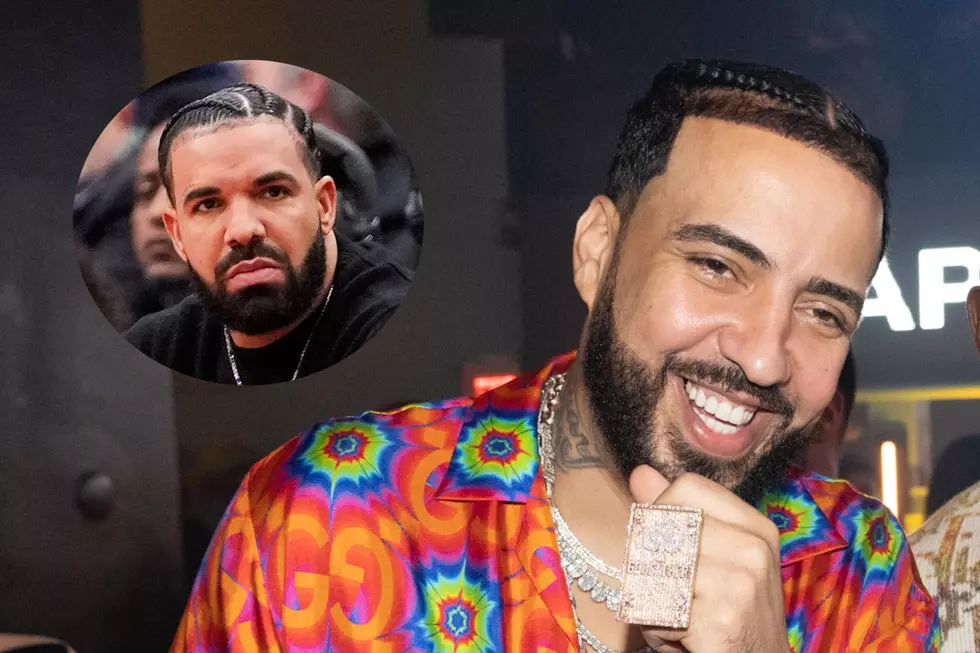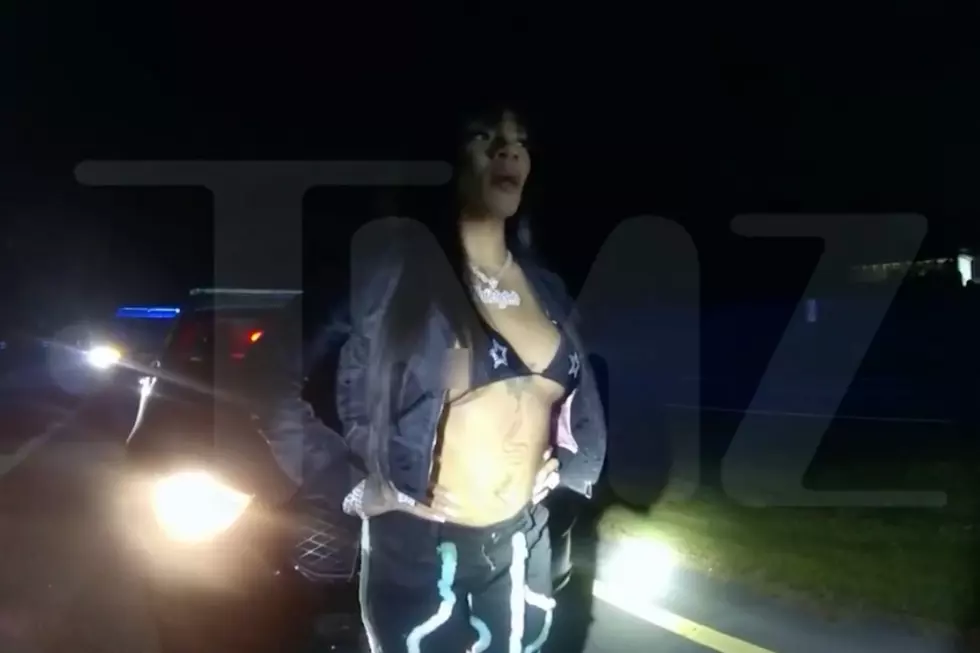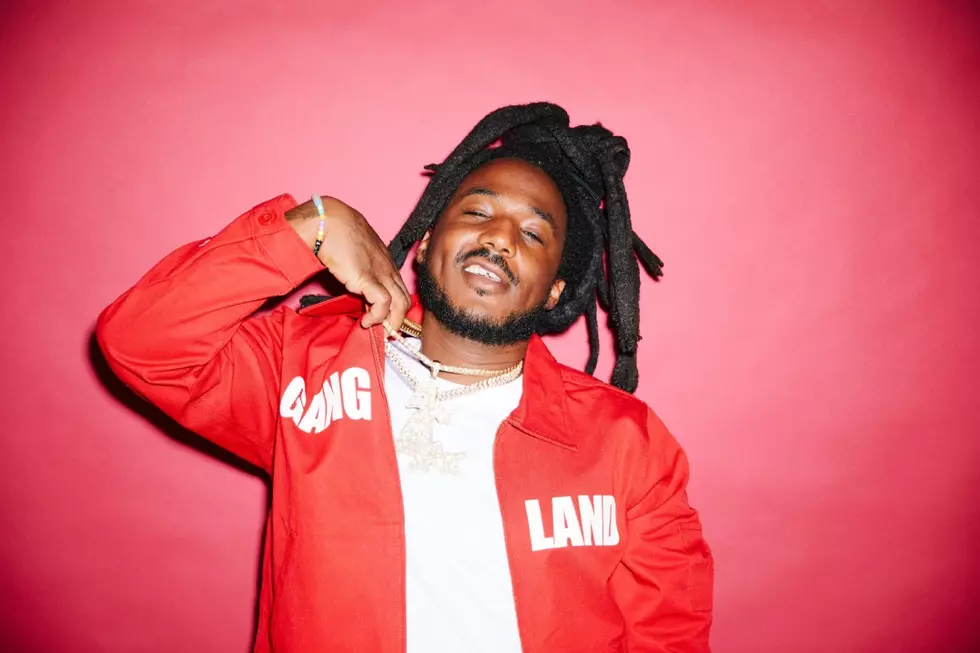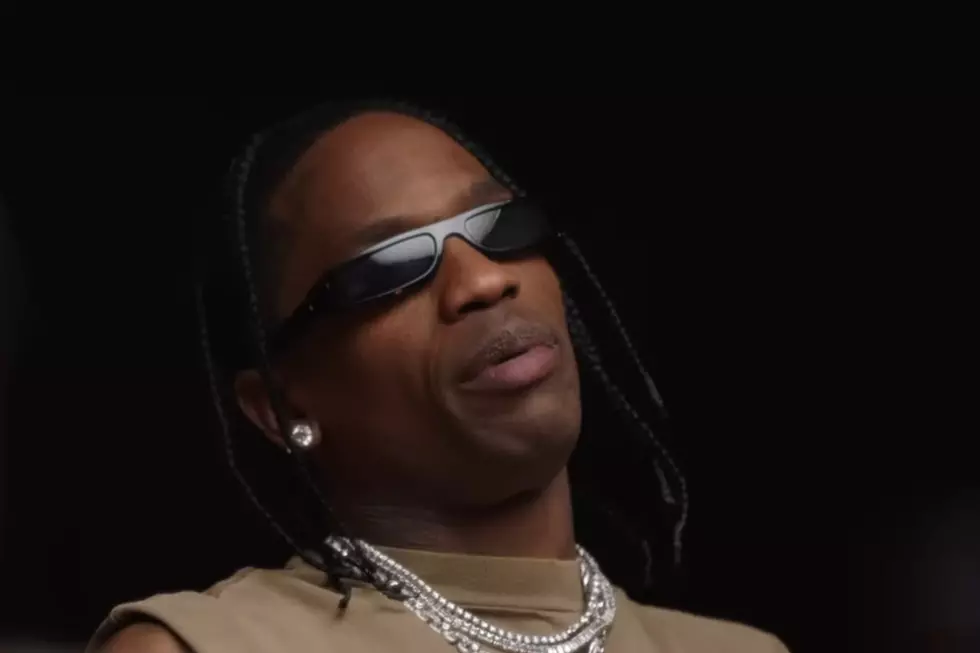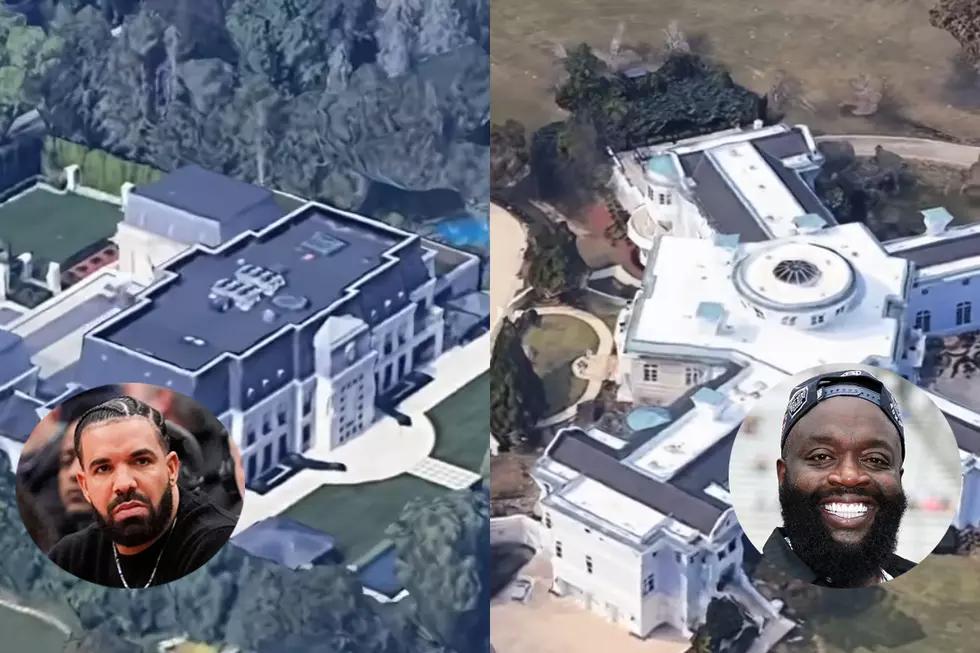Blahz: All Samples Cleared
This New York vet just filed a lawsuit against Wyclef for jacking Blahzay Blahzay’s 1995 classic “Danger.” Where's the beef?
 The memorable refrain “When the East is in the house—Oh my God” still brings feelings of nostalgia to hip-hop heads reminiscing on the genre’s heyday. The year was 1995 when the Brooklyn-bred duo Blahzay Blahzay—made up of rapper Blahz (who was known as MC Out Loud at the time) and DJ/producer P.F. Cuttin’—put together the classic East Coast head-banger “Danger.” The track’s mark on hip-hop history is indelible, yet Blahz is claiming that Wyclef Jean is trying to erase the group from the history books. While ’Clef was recording his latest album, Carnival II: Memoirs of an Immigrant, he lifted parts of the beat and the hook from “Danger” for his track “Welcome to the East.” The problem is, he never cleared the sample, and didn’t even credited Blahzay Blahzay. Now, Blahz is taking Wyclef and Sony to court for copyright infringement while he preps his own return to the rap game with a new untitled album. Hoping to enlist other artists who have suffered the same fate, Blahz is ready to fight the power.
The memorable refrain “When the East is in the house—Oh my God” still brings feelings of nostalgia to hip-hop heads reminiscing on the genre’s heyday. The year was 1995 when the Brooklyn-bred duo Blahzay Blahzay—made up of rapper Blahz (who was known as MC Out Loud at the time) and DJ/producer P.F. Cuttin’—put together the classic East Coast head-banger “Danger.” The track’s mark on hip-hop history is indelible, yet Blahz is claiming that Wyclef Jean is trying to erase the group from the history books. While ’Clef was recording his latest album, Carnival II: Memoirs of an Immigrant, he lifted parts of the beat and the hook from “Danger” for his track “Welcome to the East.” The problem is, he never cleared the sample, and didn’t even credited Blahzay Blahzay. Now, Blahz is taking Wyclef and Sony to court for copyright infringement while he preps his own return to the rap game with a new untitled album. Hoping to enlist other artists who have suffered the same fate, Blahz is ready to fight the power.
Your classic track “Danger,” used some memorable samples. For those that don’t know, tell us how you went about clearing them.
The original samples come from a combination. The original record was from…Gwen McRae [“Rocking Chair”]. That’s the sample I used for the beat. As far as [the line], “When the east is in the house,” it’s a combination of Jeru, Q-Tip and Ol’ Dirty Bastard. As far as the sample clearance, I just took on the responsibility…well, they have companies that do sample clearance. You get a company, call your company and they handle the business side. Then, you contact whoever owns the publishing or owns the work and you just clear the sample. You give them what they want and you clear it. It’s a real simple process.
What was your opinion of Wyclef and his work before he reached out to you for his track “Welcome to the East?”
I was into it. I loved it. I liked the Fugees’ work. That in particular was like my favorite. On the first joint, he had a shout out to me on…I think “Cowboys” where he’s like, “When the East is in the house like Blahzay Blah.” [ED. NOTE: The MC who spit this line on “Cowboyz” was actually Young Zee from the Outsidaz]
What was your first contact with Wyclef?
He didn’t really reach out to me at first. It was a person that was working with Sony—I had worked with them in the past. It was a sample clearance company that I had worked with. I guess when they saw it was me, they contacted me because we had that relationship. So they called me, and let me know that Wyclef had my song for the album and that he wanted to know if he could clear it.
What happened next?
That was basically it. My lawyer drew up the contract and that was it. He gave it back to them and they sat with it. From that point, I didn’t really hear from the sample clearance company. So it took me a while to get in touch with the sample peoples. They kept telling me, “Wyclef’s on vacation; he’s out of town; we can’t reach him.”
Was that the last you heard from them?
Yeah, through tons of emails we were sending them, they [the sample clearance company] didn’t really respond; Sony didn’t respond either. No one was saying nothing.
What were your thoughts after you realized that “Welcome to the East” was going to be released without being cleared?
It was kind of crazy. Before I knew it was on the album, I saw a big campaign on the radio where he had Uncle Murda, Sizzla and I’m on the track, like working it on radio. But they said it wasn’t the album version. I didn’t really know he felt that strong about it.
So when the song hit radio, did you try to reach out to Wyclef and his people?
Oh yeah. That was right before December, right before the album dropped. I reached out to him real crazy. I reached out to the sample clearance company, couldn’t get them to respond to my emails. I saw that they had it up for sale on downloads online, selling the ringtones and we reached out and still couldn’t get a response from nobody. So at that point my lawyer sent the record company and sample clearance company a cease and desist letter. I think we got one email from the sample clearance company that made it seem like it was a joke, like, “Why you do that?” Then, the album drops December 4th, even after we sent the cease and desist letter. So we still didn’t have no agreement, no payment or nothing. All we were doing, at that point was screaming. We couldn’t get a real answer as to what was being done to clear the sample.
What made you finally file the suit against Wyclef and Sony?
When I didn’t see no credit on the album that was it to me. It was crazy because I was doing my own new lyrics to the track. I had gotten Red Café. I was putting Uncle Murda on it and we had already recorded the song. I put that to the side for Wyclef’s situation, because I thought it was going to be big. At the time, I was having a lot of problems in my family. My uncle had cancer and it was a monetary thing. I was going to get some money from Wyclef, help my family, help my uncle out. So it took a lot for me to put my project on the side and to move with Wyclef and make it pop, do remixes with him, get on the song, whatever I can do. I didn’t get that in response from him. So I guess he felt different. I guess he had his own agenda.
So, he took a potentially big track and some funds…
I gave it to him. I’m not going to say he took it. I gave him the opportunity to do it. You know, it was like, I need the money right now. I just found out my uncle has cancer, so let’s do it. Let’s make it happen. I need that money. I could do a lot with that. So when all of this is going down, what was so significant, when I look at it in hindsight, is that in December my uncle passed and I still didn’t hear nothing from Wyclef. So, that kind of really made me switch gears. That’s when I was like, “Nah, you can’t put out the record. I ain’t get paid. Y’all running promotions and y’all didn’t go through the paperwork. Y’all didn’t send us a check.” My whole initiative to do the deal was my uncle, and he passed. So at that point, I was tight.
Did you take Wyclef’s actions as disrespectful?
Ah man, I felt so, so disrespected by that and when he did the credits on the album, his peoples playing the tambourines on a song, he shouted them out and gave them credit on the album. The people that are doing minor stuff, he shouted them out and gave them their credit due. But he didn’t give any credit to my work and that’s what’s got me pissed.
While all of this is going down, did you ever hear from Wyclef, personally?
Nah, I never heard back from the company, his manager or nothing. It wasn’t until Wendy [Williams] heard what was going on and she got me to come up there and talk about it. When I spoke about it on the show, Wyclef called me that night, and this is in January. He said he ain’t know what was going on and I was like, “You didn’t credit me on the album.” I’m like, “You knew what was going on, that was stuff you handled, and if you taking other people’s work, you gotta handle the business. You a producer yourself.” And that’s what I think it was. When you’re a producer and you’re an artist, you want to...take the credit for the work, you kind of want to rearrange history. The production you take from, you really not trying to credit that. But, anybody who heard the record or anybody who does the write-ups online, they’re like, “Oh, he took Blahzay Blahzay’s record ‘When the East is in the House.’”
So when you all spoke on the phone, you never came to some type of agreement?
No, it was a really short conversation on the phone. I was tight at that point and I really didn’t have much to say to him. It was six months later from a contract being drawn up…six months later and they got the record out promoting it on the radio.
What do you hope to accomplish by taking him to court?
What I really want to be known here is that if you own your work, you have a voice and you don’t have to take that from these major labels, the major artists. It happens so much. What really got me charged is just to see the struggle so many people go through. It happens to so many artists, like the Beatnuts. They reached out to me. They have a record [that was sampled by Jennifer Lopez’s] “Jenny from the Block” and I heard the record remade so I’m like, “They cleared that record with the Beatnuts and they’re giving the Beatnuts props? That’s what’s up.” But, I was so shocked to find out that they didn’t even call the Beatnuts. They couldn’t even say nothing. They just had to deal with that.
What kind of advice would you give to someone else who feels their work has been stolen in a similar way?
The best advice I can give them is, try to get your voice heard, man. Basically, if I can be a voice for you, get in touch with me. I’m real charged on this. “Danger” is my work. That’s an East New York anthem. That a…religious record in East New York. That kind of like when Dr. Dre sampled some Indian religious music and the Indian community got real tight. They were mad because it was some religious music that he sampled and he sampled it and used it however he wanted to use it but it meant a lot to other people. So that’s what got me fumed. My music means a lot to East New York, Brooklyn, where I’m from. So I’m ready to start a whole campaign. We’re getting together, organizing the whole man against the machine, and we’re going to try and help you out and try to be a voice for the artist that has no voice.
Have you heard anything from Wyclef or Sony’s legal team since filing suit?
Nah, that’s the business of Sony. They did it with Lil Flip and the Pac Man beat [“Game Over”]. They snatched that from whoever and they just put it out and didn’t give a shit until they went to court. And that situation hurts the artist, because Lil Flip can’t make music with Sony no more because he has that debt. That’s a good artist not making music no more. And as the game keeps going on and the music business becomes smaller, it’s not as lucrative for as many people. So that type of infringement has to stop because it’s going to mess up the talent.
What do you think this says about the state of hip-hop in general?
I think that’s what the world hates about New York rappers. They think we’re too arrogant. We’re too much like, “Fuck you and just be happy to be down.” That has to change. It’s a global market for artists and we can all make money all over the world, but we can’t be happy because we hate on each other. That’s how we operate. We don’t want to work with each other properly and we look down on other rappers. We’re too arrogant with it.
More From XXL

